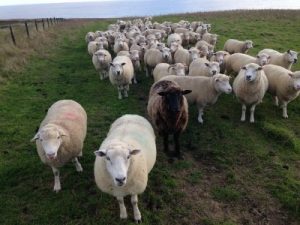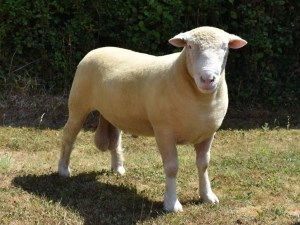The annual Melplash Agricultural Society’s flock competition rewards farmers in the area for their shepherding and flock management skills.
It is open to sheep farmers with large, medium and small flocks who keep sheep for breeding whether commercial, pedigree or rare breed and live within 12 miles of Melplash village church.
The winners will be awarded their cups by the Society President, Richard King, at the Melplash Show on Thursday 23 August.
The results this year are:
Small Flocks (15-30 ewes)
Judged by Martin Stanbury
Winner of The Melplash Agricultural Society Perpetual Plaque – Harry Brooks, Hardington
2nd – Bill Dupont, Beaminster
3rd – James Gibson, Toller Porcorum
Medium Flocks (51-300 ewes)
Judged by Martin Stanbury
Winner of the JRB Bowditch Perpetual Cup – Mr & Mrs Wilkins, Hooke, near Beaminster
2nd – Mr & Mrs Andrews, Cattistock
Large Flocks (301 ewes and over)
Judged by Jo Goodfellow and Philip Brooks
Winner of The Newall Perpetual Cup – Martin Yeates, Swyre
2nd – Gareth Beynon, Rampisham
3rd – Adam Fooks, Portesham
4th – Messrs Maltby, Long Bredy
 Harry Brooks said: “We were really pleased to win the small flock competition with our Poll Dorsets. We have had some good results in the show ring this year, with our stock ram ‘Poorton Z122’ being breed champion at the Royal Bath and West. We are very much looking forward to Melplash Show in August.”
Harry Brooks said: “We were really pleased to win the small flock competition with our Poll Dorsets. We have had some good results in the show ring this year, with our stock ram ‘Poorton Z122’ being breed champion at the Royal Bath and West. We are very much looking forward to Melplash Show in August.”
Manor Farm is a family farm run by Peter and Martin Yeates.
On winning the large flock category, Martin commented: “We farm 1,100 ewes plus followers, comprising mostly Dorsets and Dorset X Texel Aberdales. Rams include Dorset, AberMax and AberBlack.
“The ewes lamb in four blocks: September, November, January and April/May. Ewes can lamb three times in two years, so in this year coming we will lamb about 1,500 ewes on the farm!
“Our key aim is to sell as many lambs as possible during the months when new season lamb commands a premium. The ewes are fed adlib clamp silage and a high DUP, 27% CP, concentrate in the lead up to lambing to promote colostrum quality and milk production.
“Depending on the lambing block, lambs are weaned at between seven and 12 weeks old to allow the ewes to get back in lamb quickly and allow the best grass to be prioritised for the lambs. This is especially important in a dry year such as this.”











